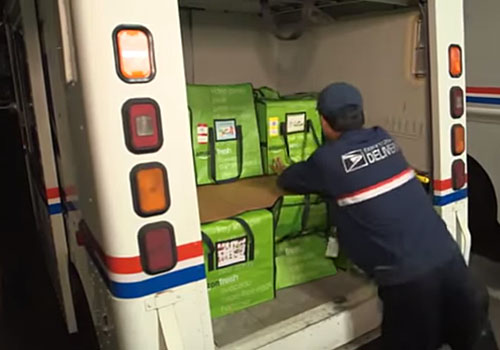
APWU Presses for Improved Conditions
Negotiations between the American Postal Workers Union (APWU) and the USPS continue for a successor Collective Bargaining Agreement, to take effect Nov. 21, 2006. The union has submitted a variety of proposals that are intended to improve the conditions of postal employees, and the Postal Service has submitted proposals that would erode employee rights and benefits.
Economic proposals, including wage increases, cost-of-living allowances (COLA), night differential pay, and uniform allowances, have not been presented to date.
A principal focus has been on upgrading those jobs that were not upgraded as a result of the 2001 interest arbitration or the contract extensions of 2002 and 2005. Another issue of importance has been the elimination of part-time employment in offices where full-time assignments are warranted.
The union is flexible on the length of a new contract, with the term dependant on the specifics of a final agreement.
There have been no surprises in the negotiations to date, as each side has explained its priorities and provided justification for their objectives.
One of the central issues under discussion is how much the Postal Service will contribute toward health benefit premiums and how much employees will pay. In the private sector, healthcare coverage has eroded, with employers shifting more of the growing costs of medical services to employees. Issues related to healthcare have emerged as a major point of contention in virtually all private-sector contract negotiations over the past five years. As we anticipated, the issue also has been placed at the forefront of postal negotiations.
At the negotiating table, postal management has given a series of formal presentations on the Postal Service’s financial position, marketing, and mail volume, which are intended to undermine union demands and justify USPS proposals. The union has countered with documentation of the cost of postage as compared to the rates in other countries; the effect of excessive discounts on USPS finances, the employment uncertainties caused by massive excessing and reassignments; increases in the cost of living; and the need to balance the rights of employees more equitably between management and the employees.
It is too early to reach conclusions on whether or not voluntary agreement will or can be reached. Over the coming weeks discussions will take on added intensity as the parties focus on the issues that are absolutely necessary to arrive at a mutual agreement.
If voluntary agreement cannot be reached, the law requires referral to binding arbitration. This process requires the mutual selection of an arbitrator, followed by the laborious process of each side presenting their case intended to influence the arbitrator’s final decision. While we always are prepared for the possibility that arbitration may be necessary, at this stage the union’s focus is on reaching a voluntary agreement that can be submitted to the membership for approval.
William Burrus
President












